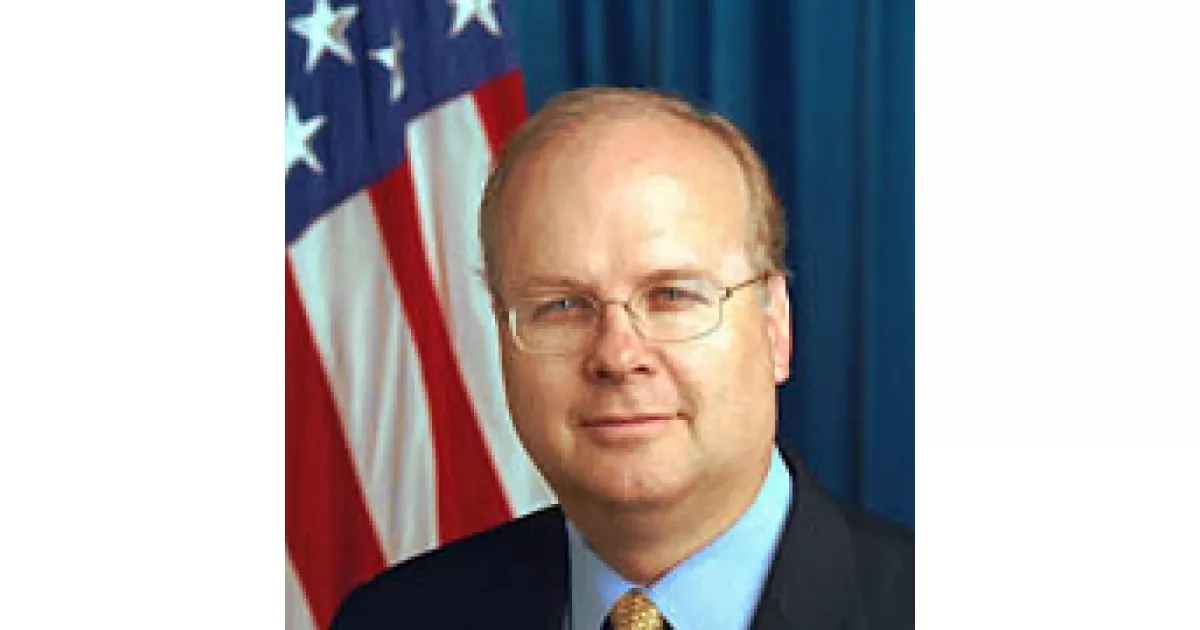Karl Rove is an American Republican political consultant, policy advisor, and lobbyist notable for his influential role in Republican politics. He served as Senior Advisor and Deputy Chief of Staff during George W. Bush's presidency until 2007. Rove also directed key White House offices, including Political Affairs and Strategic Initiatives. He is recognized as one of the architects of the Iraq War due to his influential role in the Bush administration's decision-making process.
December 25, 1950: Karl Rove's Birth
On December 25, 1950, Karl Christian Rove was born. He later became a prominent American Republican political consultant, policy advisor, and lobbyist.
December 1969: Family upheaval and revelation about Karl Rove's biological father.
In December 1969, after a heated argument with his wife, the man Rove knew as his father left the family and divorced Rove's mother soon afterwards. Around December 1969, Rove was informed that his biological father was not the man who raised him, but his mother's previous husband.
July 1972: Atwater heard anecdote similar to one described in the Washington Post.
In July 1972, Atwater said he had heard a similar anecdote to the one described in The Washington Post during a coffee break. The anecdote was related to alleged unethical tactics being taught to young republicans
August 10, 1973: "GOP Party Probes Official as Teacher of Tricks" article in The Washington Post
On August 10, 1973, during the Watergate scandal, The Washington Post published an article titled "GOP Party Probes Official as Teacher of Tricks", based on recordings of training seminars where Rove's co-presenter cautioned against unethical tactics. The recordings were made by someone hoping for an appointment from Rove's competitor in the CRNC chairmanship race.
August 13, 1973: Atwater Signs Affidavit Regarding Rove's Seminar
On August 13, 1973, Lee Atwater signed an affidavit stating he had heard a similar anecdote to the one described in The Washington Post during a coffee break in July 1972.
September 6, 1973: Bush Chooses Rove as Chairman of the College Republicans
On September 6, 1973, George H. W. Bush chose Karl Rove to be chairman of the College Republicans, following an investigation into allegations against Rove. Bush wrote Edgeworth a letter saying that he had concluded that Rove had fairly won the vote at the convention.
November 1973: First Meeting with George W. Bush
In November 1973, Karl Rove met George W. Bush for the first time when he delivered a set of car keys to him, as requested by George H.W. Bush. George W. Bush was visiting home during a break from Harvard Business School at that time.
July 10, 1976: Rove Marries Valerie Mather Wainwright
On July 10, 1976, Karl Rove married Houston socialite Valerie Mather Wainwright.
1977: Hired by George H.W. Bush
In 1977, George H. W. Bush hired Rove as the first person for his 1980 presidential campaign.
1978: Advising Bush's Congressional Campaign
In 1978, Rove advised the younger George W. Bush during his unsuccessful Texas congressional campaign.
1980: Bush as Vice-Presidential Nominee
In 1980, George H. W. Bush's presidential campaign ended with Bush as the vice-presidential nominee.
1980: Rove Divorces Wainwright
In early 1980, Karl Rove and Valerie Mather Wainwright divorced.
September 11, 1981: Death of Rove's Mother
On September 11, 1981, Karl Rove's mother died by suicide north of Reno, Nevada, shortly after deciding to divorce her third husband after three months of marriage.
1982: Phil Gramm Elected to U.S. House
In 1982, Phil Gramm was elected to the U.S. House of Representatives as a conservative Texas Democrat.
1982: Assisting Bill Clements' Reelection Campaign
In 1982, Rove assisted Governor Bill Clements in his run for reelection, but Clements was defeated by Democrat Mark White.
1983: Gramm becomes a Republican
In 1983, Phil Gramm became a Republican.
1984: Helping Gramm Win U.S. Senate Seat
In 1984, Rove helped Gramm, who had become a Republican in 1983, defeat Republican Ron Paul in the primary and Democrat Lloyd Doggett in the race for U.S. Senate.
January 1986: Rove Marries Darby Tara Hickson
In January 1986, Karl Rove married Darby Tara Hickson, a breast cancer survivor and graphic designer.
1986: Office Bugging Controversy
In 1986, just before a crucial debate in the campaign, Rove claimed that his office had been bugged by Democrats. The police and FBI investigated and discovered that the bug's battery was so small that it needed to be changed every few hours, and the investigation was dropped. Critics suspected Rove had bugged his own office.
November 1988: "Clean Slate '88" campaign.
In November 1988, Phillips' election was part of "Clean Slate '88", a campaign that was successful in getting five of its six candidates elected.
1989: Encouraging Bush to Run for Governor
In 1989, Rove encouraged George W. Bush to run for Texas governor, provided policy tutoring, and introduced him to reporters. Bush eventually declined, and Rove backed another Republican who lost in the primary.
1990: FBI Investigation Charge
In 1990, Rove was charged with asking the Federal Bureau of Investigation (FBI) to investigate major Democratic officeholders in Texas.
1990: Other Rove Candidates Win
In 1990, two other Rove candidates won: Rick Perry became agricultural commissioner, and Kay Bailey Hutchison became state treasurer.
1991: Advising Philip Morris
In 1991, Karl Rove began advising the tobacco giant Philip Morris, earning $3,000 a month through a consulting contract.
1991: Sued Thornburgh for Non-Payment
In 1991, Rove sued Dick Thornburgh for non-payment for services rendered during the Senate campaign. Despite pressure from the RNC and an amicus brief written by Kenneth Starr, Rove prevailed in court.
1991: Working on Thornburgh's Senate Campaign
In 1991, Rove's company worked for Dick Thornburgh's Senate campaign in Pennsylvania, which ended in an upset loss to Democrat Harris Wofford after John Heinz's death.
1992: Managing Florence Shapiro's Campaign
In 1992, Rove managed Florence Shapiro's campaign for District 2 in the Texas Senate, marked by a hotly-contested election and vandalism due to Shapiro's faith.
1992: Fired from Bush Presidential Campaign
In 1992, Rove was fired from the Bush presidential campaign for allegedly leaking a negative story to Robert Novak about campaign fundraising chief Robert Mosbacher Jr. Rove apparently confirmed his involvement with Novak during testimony before the CIA leak grand jury.
June 1993: Hutchison Wins Senate Election
In June 1993, Rove helped Kay Bailey Hutchison win a special Senate election, defeating Democrat Bob Krueger to fill the last two years of Lloyd Bentsen's term.
November 1993: Rove Advising Bush
In November 1993, Rove began advising George W. Bush in his campaign to become governor of Texas, after Bush announced his candidacy.
1993: Consulting fees by Ashcroft's Senate campaign
In 1993, Karl Rove & Company was paid for consulting by John Ashcroft's Senate campaign.
1993: Kay Bailey Hutchison senatorial campaign
In 1993, Karl Rove worked on the senatorial campaign for Kay Bailey Hutchison
January 1994: Bush's Campaign Spending
In January 1994, George W. Bush had spent more than $600,000 on the race against incumbent Democrat Ann Richards, with $340,000 of that paid to Rove's firm.
1994: Consulting fees by Ashcroft's Senate campaign
In 1994, Karl Rove & Company was paid $300,000 in consulting fees by John Ashcroft's successful Senate campaign.
1994: Alabama Supreme Court races
In 1994, Karl Rove was involved with the Alabama Supreme Court races.
1994: George W. Bush gubernatorial campaign
In 1994, Karl Rove was involved with the George W. Bush gubernatorial campaign.
1994: John Ashcroft senatorial campaign
In 1994, Karl Rove was involved with the John Ashcroft senatorial campaign.
1994: Alabama Supreme Court Election Involvement
In 1994, Rove was hired by the Business Council of Alabama to help run a slate of Republican candidates for the state supreme court, resulting in a court battle over absentee ballots that ended with a Republican candidate winning by 262 votes.
1996: Severing ties with Philip Morris
In 1996, Rove severed his consulting tie with Philip Morris due to feeling awkward about balancing his role as Bush's top political advisor while Bush was governor of Texas and Texas was suing the tobacco industry.
December 1998: Payments to Rove & Co. and Praxis List Company
From July through December 1998, George W. Bush's reelection committee paid Rove & Co. nearly $2.5 million and the Rove-owned Praxis List Company $267,000 for mailing lists. About 30% of the $2.5 million was for postage.
1998: Republicans held all nine seats on the Court
By 1998, Republicans held all nine seats on the Texas Supreme Court.
1998: George W. Bush gubernatorial campaign
In 1998, Karl Rove was an adviser for Bush's re-election campaign.
March 1999: Bush's Campaign Finances
As of March 1999, George W. Bush raised $17.7 million for his reelection campaign, with $3.4 million unspent.
1999: Selling Karl Rove & Co.
In early 1999, Rove sold his direct-mail business, Karl Rove & Co., and Praxis List Company to Ted Delisi and Todd Olsen, political operatives. The sale was a condition set by George W. Bush before Rove became chief strategist for Bush's presidential bid.
2000: Harold See campaign for Chief Justice
In 2000, Karl Rove was involved in Harold See's campaign for Chief Justice
January 2001: Appointment as Senior Advisor
In January 2001, Rove accepted an appointment as Senior Advisor to President George W. Bush.
August 2002: Establishment of White House Iraq Group
In August 2002, The White House Iraq Group (WHIG) was established, eight months prior to the 2003 invasion of Iraq.
2002: Rove Builds Home in Rosemary Beach, Florida
In 2002, Karl Rove built a home in Rosemary Beach, Florida, which included a television studio for remote news appearances.
August 29, 2003: Rove Accused of Leaking Valerie Plame's Identity
On August 29, 2003, retired ambassador Joseph C. Wilson IV claimed that Karl Rove leaked the identity of Wilson's wife, Valerie Plame, a CIA employee, as retaliation for Wilson's criticism of the Bush administration's use of the yellowcake documents in the lead-up to the Iraq War.
2003: Role in the Lead-Up to the Iraq War
In 2002 and 2003, Rove chaired meetings of the White House Iraq Group (WHIG), developing a strategy to publicize the White House's assertion that Saddam Hussein posed a threat to the United States.
2003: McClellan Claims Untruths About Rove's Involvement in Plame Affair
In 2003, Scott McClellan made statements about Karl Rove's lack of involvement in the Valerie Plame affair. These statements were later claimed to be untrue.
2003: CIA Leak Scandal
In 2003, the CIA Leak scandal started when Valerie Plame, a CIA operative, was outed. This led to legal issues for Karl Rove and other members of the Bush administration.
January 2004: Subpoena for WHIG Records
In January 2004, a subpoena for the White House Iraq Group's (WHIG) notes, email, and attendance records was issued by CIA leak investigator Patrick Fitzgerald.
November 2004: Bush Thanks Rove
In a November 2004 speech, President George W. Bush publicly thanked Rove, calling him "the architect" of his victory over John Kerry in the 2004 presidential election.
April 2006: Reassignment to Strategic Planning
In April 2006, Rove was reassigned from his policy development role to one focusing on strategic and tactical planning in anticipation of the November 2006 congressional elections.
June 13, 2006: Prosecutors Clear Rove in Plame Affair
On June 13, 2006, prosecutors announced that they would not charge Karl Rove with any wrongdoing in the Valerie Plame affair. Special Counsel Patrick Fitzgerald indicated that the investigation was largely concluded.
July 13, 2006: Plame Sues Rove, Cheney, and Libby
On July 13, 2006, Valerie Plame sued Dick Cheney, Karl Rove, Lewis Libby, and others, accusing them of conspiring to destroy her career after her identity as a CIA agent was leaked.
August 2006: Armitage Revealed as Source of Plame Leak; Libby Charged
In August 2006, Richard L. Armitage was identified as the source of the Valerie Plame leak. The investigation resulted in felony charges against Lewis "Scooter" Libby for perjury and obstruction of justice.
October 24, 2006: Rove Forecasts Republican Victory
On October 24, 2006, Karl Rove insisted that his insider polling data indicated that Republicans would retain both houses of Congress. Despite his forecast, the Democrats won both houses in the subsequent election.
November 2006: Congressional Elections
In November 2006, Karl Rove was focusing on strategic and tactical planning for the congressional elections.
2006: Dismissal of U.S. attorneys
In 2006, Rove was involved in the dismissal of nine U.S. attorneys, which led to investigation.
May 2, 2007: Senate Committee Subpoenas Email Related to Attorney Dismissals
On May 2, 2007, the Senate Judiciary Committee issued a subpoena to Attorney General Gonzales demanding all emails from Karl Rove regarding the dismissal of U.S. attorneys controversy. The subpoena also requested emails related to the Valerie Plame controversy and the 2003 CIA leak scandal.
August 31, 2007: Resignation from the Bush Administration
On August 31, 2007, Karl Rove resigned from his position as Senior Advisor and Deputy Chief of Staff during the George W. Bush administration.
2007: Hitchens Claims Rove is "Not a Believer"
In 2007, Christopher Hitchens claimed that Karl Rove was "not a believer" in an interview with the New York Review of Books.
March 9, 2008: Rove Speaks at University of Iowa Amid Protests
On March 9, 2008, Karl Rove appeared as a paid speaker at the University of Iowa. He was met with hostility and two students were removed for attempting a citizen's arrest.
May 22, 2008: Rove Subpoenaed to Testify on Justice Department Politicization
On May 22, 2008, Karl Rove was subpoenaed by House Judiciary Committee Chairman John Conyers to testify about the politicization of the Department of Justice.
June 24, 2008: Rove Criticizes Obama
On June 24, 2008, Karl Rove made disparaging comments about Barack Obama, describing him with a negative stereotype.
July 2008: Rove Defends Role at Fox News
In July 2008, Karl Rove defended his role as an analyst for Fox News' election coverage to the Television Critics Association.
September 26, 2008: Rove Debate Changes Opponent
On September 26, 2008, Karl Rove agreed to debate John Edwards at the University at Buffalo. However, Edwards withdrew and was replaced by Wesley Clark.
November 2008: Fox News Election Coverage
In November 2008, Karl Rove provided analysis for Fox News during the network's election coverage.
2008: Rove Hired by News Outlets and Advises McCain
In 2008, Karl Rove was hired to write about the presidential election for Newsweek. He was also hired as a contributor for The Wall Street Journal and a political analyst for Fox News. Additionally, Rove was an informal advisor to John McCain's presidential campaign.
2008: McClellan's Book Alleges Rove's Involvement in Plame Affair
In 2008, former Bush press secretary Scott McClellan claimed in his book, What Happened: Inside the Bush White House and Washington's Culture of Deception by Public Affairs Books, that the statements he made in 2003 about Karl Rove's lack of involvement in the Valerie Plame affair were untrue.
February 23, 2009: Rove Fails to Appear for Congressional Testimony
On February 23, 2009, Karl Rove was required by congressional subpoena to testify before the House Judiciary Committee regarding the dismissal of seven U.S. attorneys and the political prosecution of Don Siegelman, but he did not appear on that date.
July 30, 2009: Rove Testifies Before House Judiciary Committee
On July 30, 2009, Karl Rove testified before the House Judiciary Committee regarding the dismissal of seven U.S. attorneys under the Bush administration and the prosecution of Don Siegelman. The Committee concluded that Rove had played a significant role in the Attorney firings.
September 2009: Rove Inducted into Scandinavian-American Hall of Fame
In September 2009, Karl Rove was inducted into the Scandinavian-American Hall of Fame. The induction sparked controversy due to political views and his ongoing investigation by Democrats in Congress regarding the 2006 dismissal of nine U.S. attorneys.
December 2009: Rove and Hickson Divorce
In December 2009, Karl Rove and Darby Tara Hickson divorced.
March 2010: Rove's Memoir Published
In March 2010, Karl Rove's memoir, Courage and Consequence, was published. It received a critical review from Dana Milbank of The Washington Post.
2010: Rove Affirms Christian Faith
In 2010, Karl Rove stated that he is a practicing Christian, clarifying that Christopher Hitchens had misinterpreted his feelings about faith.
2010: Rove Co-Founds American Crossroads
In 2010, Karl Rove, with Ed Gillespie, helped found American Crossroads, a Republican 527 organization to raise money for the 2012 election effort. Rove served as an informal advisor.
2010: Rove's Autobiography
In his 2010 autobiography, Rove called the FBI investigation charge a "myth".
December 15, 2011: Rove Profiled in The New Republic
On December 15, 2011, The New Republic published a profile of Karl Rove, describing him as adept at exploiting the political climate after the Supreme Court's Citizens United decision through his involvement with American Crossroads.
June 2012: Rove Marries Karen Johnson
In June 2012, Karl Rove married lobbyist Karen Johnson in Austin, Texas. George W. Bush and Steve Wynn attended the wedding.
November 6, 2012: Rove Protests Fox News' Election Call
On November 6, 2012, Karl Rove contested Fox News' call of the 2012 presidential election for Barack Obama, leading to a tense exchange with Megyn Kelly.
2012: American Crossroads fund raising for election
In 2012, Karl Rove's Super-PAC, American Crossroads, raised funds for the election.
2013: Rove Creates Conservative Victory Project
In 2013, Karl Rove and American Crossroads created the Conservative Victory Project to support electable conservative candidates. This effort drew criticism from within the Tea Party movement.
2015: Rove's History Book Published
In 2015, Karl Rove's history book, The Triumph of William McKinley: Why the Election of 1896 Still Matters, was published.
2015: Defending the Decision to Invade Iraq
In 2015, Rove defended the decision to invade Iraq, stating that Saddam Hussein was a threat to the United States, to an Iraq War veteran.
2017: One Nation nonprofit raised money
In 2017, Karl Rove's 501(c)(4) dark money group One Nation nonprofit raised nearly $17 million.
December 2019: Rove Predicts Contested Democratic Convention
In December 2019, Karl Rove predicted that the 2020 Democratic Party presidential primaries would result in a contested convention.
May 2020: Rove Accuses Obama of Political 'Drive By Shooting'
In May 2020, Karl Rove accused former president Barack Obama of engaging in a "political drive by shooting" after Obama criticized the federal government's response to the coronavirus pandemic.
December 2020: Politico Calls Rove's Prediction Incorrect
In December 2020, after Joe Biden was nominated at the 2020 Democratic National Convention with a clear majority of delegates, Politico named Karl Rove's prediction of a contested convention one of "the most audacious, confident and spectacularly incorrect prognostications about the year".
2021: Rove Guest Professor at University of Texas at Austin
In the fall semester of 2021, Karl Rove worked as a guest professor at the University of Texas at Austin teaching a course for UT's Plan II Honors department called Modern American Political Campaigns. Rove invited guest speakers for the students to interview and the class was protested by students.
Mentioned in this timeline

Barack Obama the th U S President - was the...
Fox News Channel FNC is a conservative American news and...

George W Bush the rd U S President - is...
The United States of America is a federal republic located...

Joe Biden is an American politician who served as the...

The White House located at Pennsylvania Avenue NW in Washington...
Trending
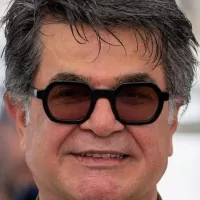
6 minutes ago Jafar Panahi faces restrictions, continues filmmaking despite adversity and imprisonment in Iran.
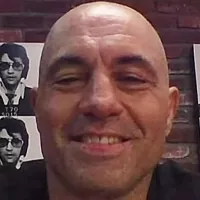
6 minutes ago Joe Rogan Interviews RFK Jr. on Trump's ICE Raids and US Taxpayer Losses.

6 minutes ago Joki? Confronts Dort After Trip, Tempers Flare in Nuggets-Thunder Game
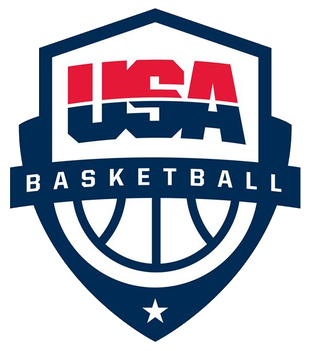
7 minutes ago Arizona Dominates Kansas to Secure Share of Big 12 Title in Basketball Game

7 minutes ago Gui Santos Secures 3-Year, $15M Deal with Warriors; Curry Issues Warning
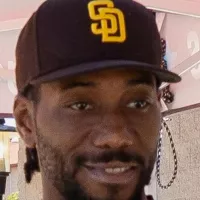
7 minutes ago Kawhi Leonard potentially playing vs Pelicans; Zach Lowe praises All-NBA caliber.
Popular

Jesse Jackson is an American civil rights activist politician and...

Hillary Diane Rodham Clinton is a prominent American politician lawyer...

Jim Carrey is a Canadian-American actor and comedian celebrated for...

XXXTentacion born Jahseh Dwayne Ricardo Onfroy was a controversial yet...

Kashyap Pramod Patel is an American lawyer who became the...

Michael Joseph Jackson the King of Pop was a highly...
